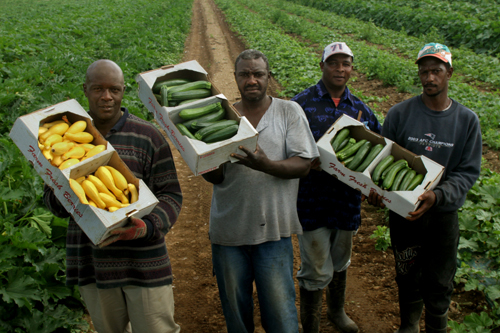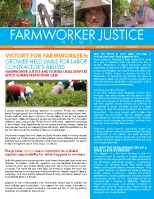Farmworker Justice commends efforts by eight Senators to reach an immigration policy solution that would grant a road map to citizenship for eleven million undocumented people in this country. "After years of delay that have harmed farmworkers and their families, we see the potential for positive immigration reform but recognize that much work lies ahead to achieve legislation that respects the people who grow and harvest our fruits and vegetables," said Farmworker Justice’s President Bruce Goldstein. “We are pleased that the Senators’ statement of principles specifically recognizes the valuable contributions to the nation by agricultural workers who perform ‘very important and difficult work to maintain America’s food supply while earning subsistence wages.’”
Read moreFarmworker Justice Statement on Bipartisan Senate Immigration Principles





